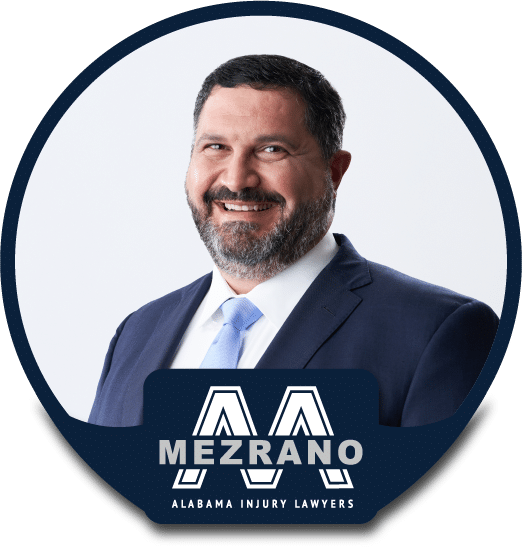How to Protect Parents’ Assets from Nursing Home Costs
Last updated Sunday, February 4th, 2024

Worried about nursing home costs eroding your parents’ assets? There are ways to prevent that. This article outlines straightforward strategies on how to protect parents assets from nursing home expenses. We’ll delve into Medicaid planning, trust options, and insurance—not just to conserve their wealth but to ensure their comfort and care without the financial burden. Ready to protect what’s theirs? Let’s dive in.
Key Takeaways
- Nursing home care costs can exceed $100,000 annually, risking the depletion of personal assets; Medicaid planning and understanding of elder law are critical for asset preservation.
- Medicaid Asset Protection Strategies, including long-term care insurance, Medicaid Compliant Annuities, and irrevocable trusts, can safeguard assets while maintaining Medicaid eligibility.
- Regularly reviewing and adjusting asset protection plans is essential to address changes in laws and personal circumstances, ensuring continuing effectiveness of the strategies.
Get Your FREE Case Review Today
Contact us today and we will help you get the compensation that you deserve.
or Send Us Your Case DetailsGet Your FREE Case Review Today
Contact us today and we will help you get the compensation that you deserve.
or Send Us Your Case DetailsNavigating Nursing Home Financial Waters
The financial implications of nursing home care can be intimidating. It’s not just about the immediate costs; there’s the potential risk to our parents’ assets to consider. Extended nursing home care can devour personal savings, retirement funds, and even the proceeds from the sale of a home. The annual nursing home care costs, without Medicaid, can surpass $100,000. This leaves many families feeling helpless and anxious.
Typically, nursing home costs are funded through personal savings, long-term care insurance, and government assistance programs like Medicaid. However, Medicare does not provide coverage for skilled nursing home costs, and most nursing homes accept Medicaid payment. To qualify for this assistance, individuals may need to spend down their assets, a process that can put their financial security at risk. Acquiring assets from nursing home care can be challenging, making it essential to plan ahead.
Understanding nursing home expenses, elder law, and Medicaid planning is beneficial. This knowledge does more than simply help figure out how to pay the bills. It aids in:
- Preserving your loved ones’ assets
- Ensuring they receive the care they need
- Empowering you to navigate the complex financial waters of nursing home care with confidence and foresight.
Crafting a Medicaid Asset Protection Strategy
Safeguarding assets and ensuring financial security can be achieved through a well-devised Medicaid asset protection strategy. However, crafting such a strategy requires a clear understanding of Medicaid’s eligibility criteria, the potential repercussions of transferring assets, and the role of different financial tools in asset protection.
The Role of Long-Term Care Insurance in Asset Protection
Preserving assets while ensuring financial independence can be accomplished with the use of long-term care insurance, a crucial tool in this process. But what exactly is long-term care insurance? It’s a type of insurance specifically designed to cover expenses not covered by regular health insurance, such as nursing home care.
The benefits of long-term care insurance include:
- Coverage for care in diverse environments
- Bridging caregiving gaps
- Enabling prolonged residence in one’s home through coverage for in-home care and home adaptations
- Safeguarding the savings, assets, and financial independence of nursing home residents and their families by covering the expenses associated with nursing home stays and assisted living.
Remember, the cost of long-term care insurance varies based on factors such as age, health, and coverage level. As such, it’s advisable to conduct thorough research and consult with a law firm or financial advisor before purchasing a policy.
Utilizing Medicaid Compliant Annuities
A Medicaid Compliant Annuity is another tool that could be effectively utilized in a Medicaid asset protection strategy. These are financial products specifically designed to reduce assets, enabling one spouse to meet the eligibility criteria for Medicaid benefits while the other spouse benefits from the income generated by the annuity.
How does this work? Essentially, a Medicaid Compliant Annuity converts cash assets into an annuity to effectively diminish excess resources and thereby help individuals adhere to Medicaid’s asset limit. This strategic planning tool can serve as a practical means of qualifying for Medicaid while preserving assets for the future.
Establishing a Trustworthy Future with Irrevocable Trusts

Setting up an irrevocable trust can offer multiple advantages, such as:
- Minimizing estate taxes
- Protecting assets from creditors
- Optimizing estate tax exemptions
- Facilitating eligibility for Medicaid, enabling coverage of nursing home costs without diminishing assets.
The process involves removing assets from the grantor’s taxable estate and transferring ownership to the trust. It’s important to note that once the assets are transferred, the terms of the trust cannot be altered. This process, while complex, can be an effective way of safeguarding assets, ensuring a secure future for beneficiaries, and achieving peace of mind.
Preserving the Homestead: The Life Estate Option
Considering nursing home costs, the preservation of the family home often becomes a significant concern. This is where a life estate option comes into play. A life estate is a legal arrangement that can help protect the family home from being considered an asset for Medicaid eligibility.
A life estate can prevent property seizure by Medicaid by effectively transferring the property while allowing the original owners to retain the right to live in the home for their lifetime. However, it’s important to be aware that the transfer of property ownership through a life estate can impact Medicaid eligibility. Medicaid regulations may assign a certain value to the life estate in relation to total assets, potentially affecting eligibility.
Careful consideration and professional guidance are advisable when considering the use of a life estate for Medicaid planning. It’s crucial to understand the potential implications and make informed decisions to ensure the best possible outcome.
Generosity with Guardrails: Gifting Assets Wisely
The act of gifting assets to loved ones can be a heartwarming gesture of generosity. However, when it comes to asset protection and Medicaid planning, it’s essential to do so with caution. This is because the Medicaid look-back period, usually spanning five years, imposes penalties for any gifts, transfers, or sales of assets for less than the fair market value.
The most efficient method for transferring assets without affecting Medicaid eligibility is establishing an asset protection trust. Unlike direct gifting, donations to charities are not considered to impact Medicaid eligibility.
Ultimately, the goal is to ensure that your act of generosity doesn’t inadvertently jeopardize your or your loved one’s financial security or Medicaid eligibility. To this end, gifting all my assets wisely – with proper planning and understanding of the implications – is a key component of successful asset protection.
Consulting the Experts: When to Involve an Elder Law Attorney
The complexities of elder law, Medicaid planning, and asset protection can often feel overwhelming to navigate. This is where the expertise of an elder law attorney can be invaluable. In preparing individuals for long-term care needs and offering guidance throughout the planning process, elder law attorneys play a crucial role.
Elder law attorneys can:
- Evaluate an individual’s financial and medical circumstances
- Analyze Medicaid statutes and regulations
- Devise strategies to safeguard assets while meeting the criteria for Medicaid benefits
Their expertise and experience can provide much-needed clarity and confidence for family members in an otherwise complex and potentially stressful journey.
It’s always advisable to seek professional advice when it comes to protecting your assets and planning for future care. An elder law attorney can guide you through the process, helping to ensure that you make informed, strategic decisions that protect your assets and secure a comfortable future for your loved ones.
Proactive Measures: Regular Review and Adjustment of Plans
Asset protection is a continuous process. It demands ongoing attention and adjustments to accommodate evolving circumstances and regulatory changes. Therefore, it’s advisable to review and adjust asset protection plans every four years or following a significant life event.
Legal or regulatory changes can impact a Medicaid asset protection strategy, as can changes in an individual’s financial situation. For example, the expiration of temporary changes to Medicaid enrollment and eligibility rules, or alterations to the validity of asset transfers for Medicaid’s old-age and nursing home coverage, can all impact your asset protection plan.
Failing to regularly update your asset protection plan can increase the risk of litigation and potential loss of assets and financial resources. Proactivity, vigilance, and adaptability are key in ensuring that your asset protection strategy continues to serve its purpose effectively and helps to preserve assets.
Frequently Asked Questions
How to deal with the guilt of putting a parent in a nursing home?
It’s important to distinguish between guilt and shame when making the decision to put a parent in a nursing home. Remember that this decision does not reflect your worth or adequacy. You are valuable and worthy regardless of this difficult choice.
Are asset protection trusts a good idea?
Yes, asset protection trusts can be a good idea for anyone concerned about shielding their financial future from judgments, lawsuits, or creditors. They offer strong protection and can help safeguard your assets in the event of legal challenges.
How do I protect my assets from medical bills?
To protect your assets from medical bills, you can secure a Health Savings Account Qualified (HSA) medical plan, fund the tax-deductible HSA to the maximum allowed by law, and consider purchasing a critical illness product and a Long Term Care (LTC) policy. These steps can provide financial security in the event of catastrophic medical expenses.






